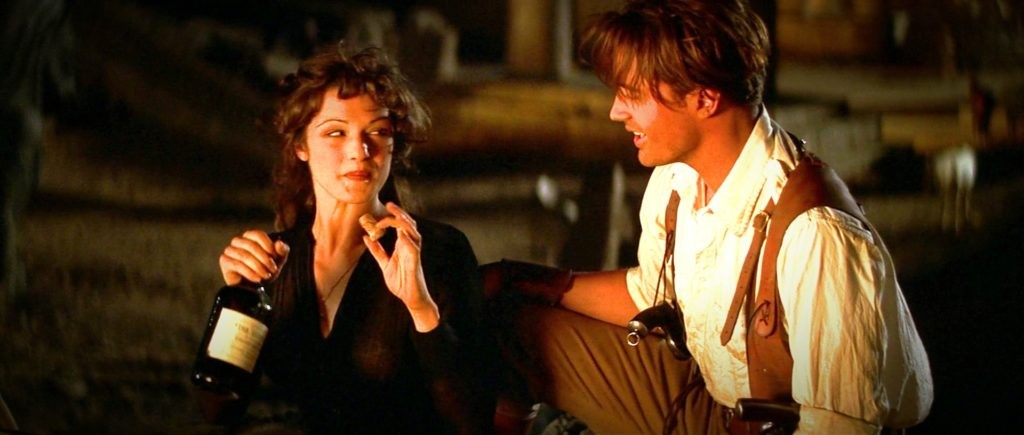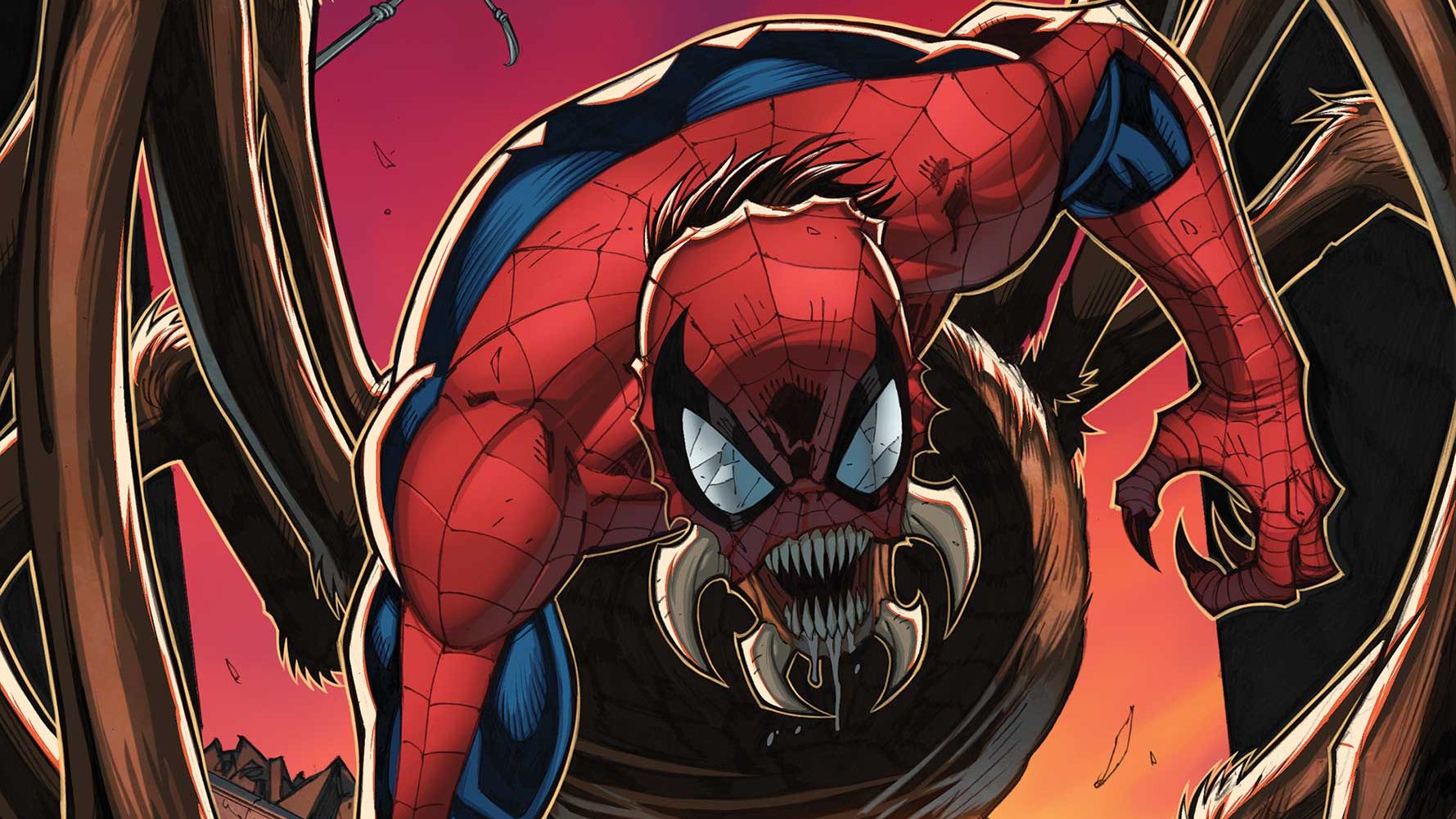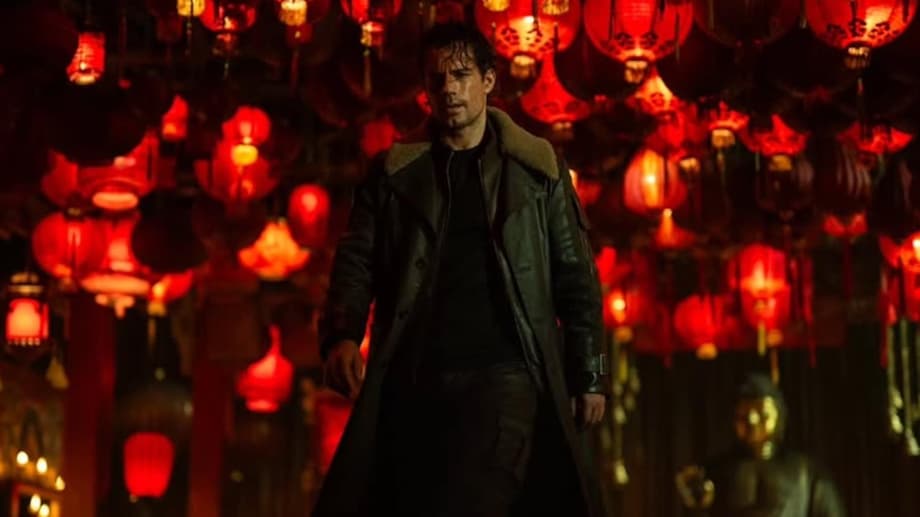For the past couple days, we’ve been posting interviews with actors behind the upcoming film, Only the Brave. Those actors portrayed men who fought wildfires and tragically lost their lives doing so. But in that line of work, they’re not the only ones making sacrifices. Alongside with them is their family.
One such family member in the film is Amanda Marsh, the wife of Josh Brolin’s Eric Marsh, portrayed by Jennifer Connelly in the film. In the film, the pair have a great dynamic, and not only does the movie show the firefighters do their work, but it shows the toll it takes on someone like Amanda Marsh.
LRM had a chance to sit down at a roundtable interview with Connelly and discuss her part int he film.
Okay, so to start off, you are completely one of the most emotional and invested roles in the film. The boys [Josh Brolin, Miles Teller, James Badge Dale] could not stop raving about you. You blew that away.
Connelly: That’s so sweet.
How did you prepare for this role? Did you talk with [the real] Amanda Marsh, did you ask her? What did you feel?
Connelly: Yeah I did. She was so great. She is so great. She’s so open, and honest, and forthright. She spent time with me. She answered all the questions that I had. She shared her memories with me, her stories. She’s really frank, and that was so helpful to me. She came [horseback] riding with me. Her honesty was really invaluable to me, so that was, I think is one of the most important things I did in preparation for the movie. That and I spent a lot of time riding.
I feel like too often these days when you see a Hollywood movie, there’s the wife of the star, and the wife of the star that has a minuscule role, they don’t give enough attention, and then I watched this movie and thought oh you have a great role. To me, you’ve got great, meaty scenes. Is it frustrating to see fellow actresses who get these roles where you don’t get to see much of them, and I feel like it’s been a pattern in recent times.
Connelly: Certainly, there are plenty of movies where the guys are the protagonists and the women are kind of just backup. I like that about this, and Amanda is not that women. It was really important I think that she was, if she was going to be reflected in this movie, that we try and reflect her the way she is as a really formidable person and strong person. So I was really happy the way she was depicted in the film. And we continued, when we first read the script, we continued to try and develop it through rehearsals, through conversations with Amanda, and then brought things to things to the writer, and [director] Joe [Kosinski] and Josh [Brolin]. We worked on trying to accentuate that dynamic. The film has a lot of breath, and there’s so much story to tell, so we also had to be kind of economical with it, and trying to capture that dynamic of their relationship and the progression of that relationship. We continued to hone in on that in rehearsals and our conservation, and develop the scenes.
It worked.
Connelly: Thank you. I was was happy that they were, everyone was on board with it being messy, the performances being a little messy, the emotion being a little bit messy, and I mean like everyone being on board. The writer being on board, and Joe and Amanda, letting them be in conflict in scenes of the film, because I’m sure that’s part of what they went through, and I’m sure part of what families of first responders everywhere went through.
Were there specific challenges that came in this role in particular? Amanda is so intimately involved in all of this, but she’s also kept at a distance, just by nature, that she’s not there fighting the fires with them. Were there certain challenges that came in doing justice to those emotions, and that very specific situation? There’s a lot of nuance there.
Connelly: Yeah, and I think that part of the story I was telling is what happens when you love someone. To love them you have to support them in doing what they want to do, what their calling is. That’s the right thing to do, to support your partner and their pursuits. Especially in this circumstance, it’s something so selfless that’s of service to communities. But at that same time, she takes that on knowing that means he’ll be spending more and more time away in increasingly dangerous situations. I think that demands a lot of fortitude to be able to do that and actually be that loving, and to keep your heart open. How do you stay vulnerable and engaged in a relationship and really actively loving when you expose yourself to that kind of potential for loss? I think that people experience that in marriages. That dynamic is on a kind of less extraordinary, or extreme scale, something that feels familiar in other kinds of marriages.
I’m a military wife. I can relate to your character, I can see myself when the husband goes for a year or more. Thank you, you did great.
Connelly: Thank you.
On a personal level, what do you want for people to see from your character about this, in this movie?
Connelly: I really like the line the poster that says, “It’s not what stands before you, it’s who stands beside you.” I think it’s a really great tag line, and I think that’s what a lot of this movie is about. These men are confronting these challenges, but also it’s important to remember the people who support them, and who stand beside them.
You and Josh had really great chemistry throughout this whole movie, and I believed while watching the movie, I believed that you two were married and actually had this relationships. It came across as though you two were really connected. Prior to the movie did you and him spend extra quality time together? Did you guys actually go out horseback riding just to kind of build that base a relationship for filming?
Connelly: You know, he’s just a really good actor (laughs). He´s just a really good actor. No, it wasn’t based on, “Oh, let’s hang out and create personal experience.” It was more like, “Let’s sit down together with Joe in a rehearsal. Let’s talk about the scenes. Let’s talk specifically about what’s here. Do we need to tweak it? What can we find? What are the specific details that we can find that tell the story of the marriage?” We kind of looked for specific things and choices to make together, but at the end of the day, he’s just really good and he’s also really available as an actor. There are really good actors who work really different. His way of working, he’s really connected in a scene. I feel like every take would be kind of different. It always felt like we were in that scene’s take together. Because we we’re listening to each other, and involved with one another. There are wonderful actors who it’s just not like that, it’s more that they know what they’re going to do, and no matter what you do, it’s exactly the same. Josh isn’t like that, the way he works is really responsive so I think maybe that’s, we both like to work that way, and so maybe that together in that circumstance helped to create that kind of dynamic.
This job as a firefighter is, obviously, very difficult. In addition to the danger, there’s also the being away for long periods of time. Did you find your experience as an actor and spouse to actor, that you were able to sort of pull from that aspect and bring it into your character, who wouldn’t see her husband for long periods of time?
Connelly: Sure, but my husband and I can usually reach by cell phone, and the worse of it is maybe he is up on a harness, up on wires, or he’s got some purple makeup on or something because he’s playing the Vision. I’m loathe to make the comparison because he’s never in harm’s way when he’s going to work. I can’t make that comparison, but sure, in terms of the rhythm of having to being used to arrivals and departures. Yes, that is something that is very similar because we do live our lives that way. There’s a lot of coming and going. That has been something to navigate. How do you just pick up where you left off and not react to those rhythms you know?
Yeah, a lot of mental energy spent on the work as well. Like in the movie, even when he’s there with her, he’s still mentally thinking about other things, and that aspect as well I can imagine is applicable.
Connelly: I imagine that’s the case in many occupations, but certainly I can recognize that in myself. Usually in anticipation, I find it hardest to let things go. The time and anticipation of a job is always the hardest for me, personally. I find that’s the time when I’m really…It’s easier for me to let go when it’s over at the end of the day, but in anticipation, I find it harder because I still have time to think about this and think about all possibilities. It’s hard for me to get it out of mind, I suppose. I get totally consumed.
In recent days you’ve heard these horrible stories coming out of Hollywood with the scandal of Harvey Winestein, I don’t want to get into that, but as an actress who’s been in the industry and is respected, what we need to do, what should be happening now, to go forward in a positive way, to make a real change and use this horrible thing as a catalyst for something positive?
Connelly: Certainly, no woman should have to suffer those kind of violations to get or maintain a job. No person anywhere should have to suffer those kinds of violations to have to get or maintain a job. That’s an abuse of power, and it absolutely should not be tolerated.
Filming this movie, did you find there times where you take the day home with you?
Connelly: Back to what I was saying before, I have a harder time going into those things when I know those things are coming. In preparation for them for me, it’s harder for me not to have that somewhere in the back of my mind. Once it’s over, sometimes I ruminate like in a more intellectual way, “I wonder about that choice I made or reflecting back,” but not as much in an emotional way. But not as much in an emotional way. Once that’s done, I kind of let that go.
Was there 1 scene in this picture that you had yourself sort of anticipating, more than the other.
Connelly: To tell you the truth, in all the years that I’ve been making movies, in every single scene I do the, I feel like every opportunity, every part, every scene, every moment is such an opportunity to it. I feel so grateful to do what I do and to have the privilege of doing what I do that I kind of approach most scenes with the same kind of [anxious anticipation]– I mean unless it’s really like you’re way in the background, because we’re seeing you through the window on this scene — you know what I mean? Yeah, I kind of get very invested what I do. I guess because I love it so much.
I heard that you were connected to a Snowpiercer TV show, and the source material is so interesting, is there anything that you can share about that? I know that it’s in development…?.
Connelly: No, we filmed. We just finished filming the first episode, and I had a great time doing it. Scott Derrickson directed it, who I’ve worked with before. I did a movie called The Day The Earth Stood Still with him. He’s a really good director. He recently did Doctor Strange which I thought he did a great job on, and yeah, that went really good.
What can you tease about it without giving away too much?
Connelly: Probably not so much (laughs), other than I thought it looked pretty good.
Any word on if you’ll be returning back to the Marvel Cinematic Universe as the voice of Karen again?
Connelly: I don’t know, I hope so. I had a great time doing it. It’s certainly a wonderful universe to be a part of.
Only the Brave hits theaters on October 20, 2017.
Don’t forget to share this post on your Facebook wall and with your Twitter followers! Just hit the buttons on the top of this page.
 FOR FANBOYS, BY FANBOYS
Have you checked out LRM Online’s official podcasts and videos on The Genreverse Podcast Network? Available on YouTube and all your favorite podcast apps, This multimedia empire includes The Daily CoG, Breaking Geek Radio: The Podcast, GeekScholars Movie News, Anime-Versal Review Podcast, and our Star Wars dedicated podcast The Cantina. Check it out by listening on all your favorite podcast apps, or watching on YouTube!
Subscribe on: Apple Podcasts | Spotify | SoundCloud | Stitcher | Google Play
FOR FANBOYS, BY FANBOYS
Have you checked out LRM Online’s official podcasts and videos on The Genreverse Podcast Network? Available on YouTube and all your favorite podcast apps, This multimedia empire includes The Daily CoG, Breaking Geek Radio: The Podcast, GeekScholars Movie News, Anime-Versal Review Podcast, and our Star Wars dedicated podcast The Cantina. Check it out by listening on all your favorite podcast apps, or watching on YouTube!
Subscribe on: Apple Podcasts | Spotify | SoundCloud | Stitcher | Google Play






